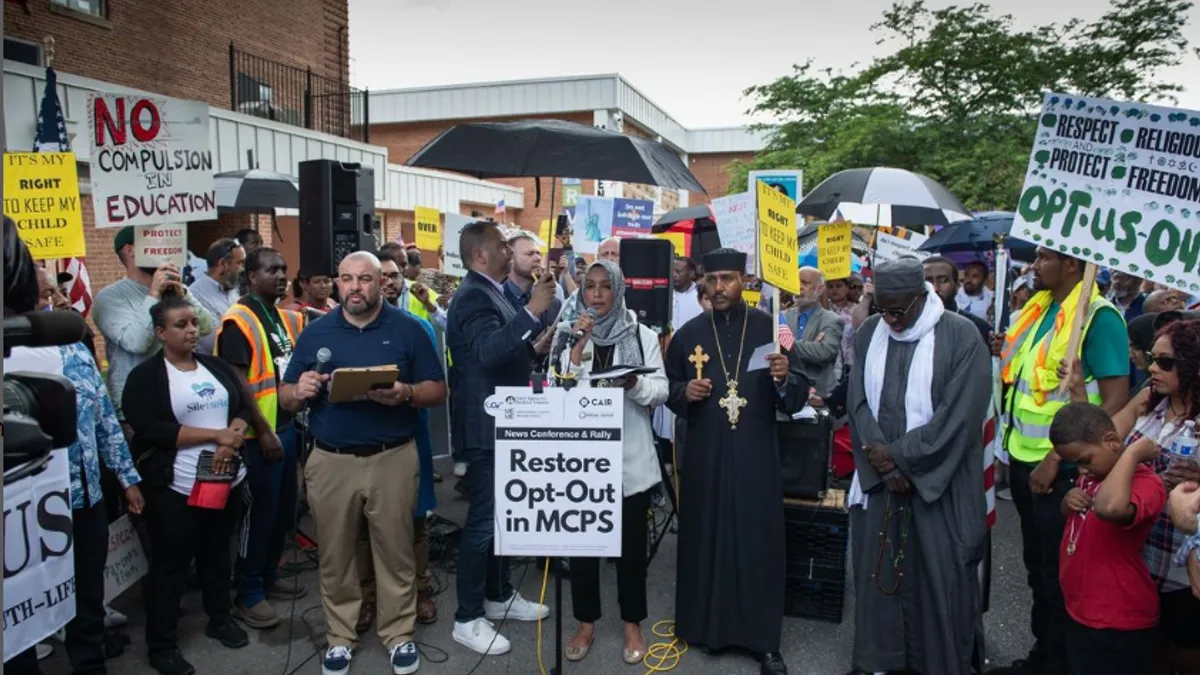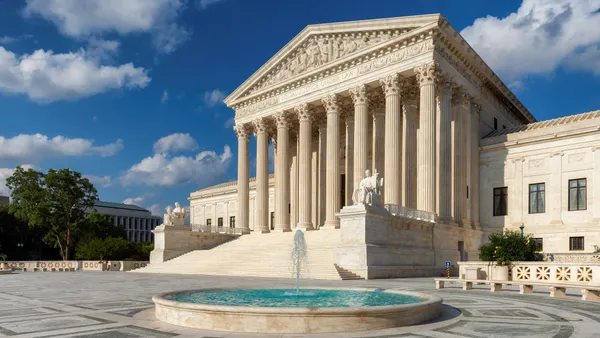Dive Brief:
-
Maryland parents hoping to revive a religious opt-out option from LGBTQ+ inclusive language arts curriculum presented their arguments against the Montgomery County Board of Education in U.S. District Court Wednesday.
-
The Muslim and Christian parents bringing the suit claim the inability to opt out of the elementary school curriculum, which was added this year, violates the First and 14th amendments, including their right to determine the religious upbringing of their children.
-
The board originally offered an option for parents to opt their children out of reading the books, but reneged after "individual schools could not accommodate the growing number of opt out requests without causing significant disruptions to the classroom environment" and the "unworkable burdens" that high opt-out volumes put on educators, according to court documents.
Dive Insight:
The lawsuit pushing for an opt-out option stands in contrast to other recent pushes from parental rights groups seeking to exclude LGBTQ+-related curricula entirely.
Offering parents the choice to opt out of curricula is a longstanding practice. However, it is one that varies by district and state. Some state laws allowing the practice do so specifically for sex education, while other laws are even narrower.
But subjects that have come under scrutiny by parents wishing to opt-out of curricula have expanded in recent years as debates over critical race theory, gender and sexuality, and even social-emotional learning divide communities.
Opting out of such subjects is a new front in the ongoing culture war that has plagued schools for the past few years.
In the Maryland case, parents are "fighting for their ability to opt their children out of storybooks that push extreme ideology regarding gender and sexuality," according to a statement released last week by The Becket Fund for Religious Liberty, a religious freedom organization whose attorneys are representing the parents.
However, the school district claimed in its July 12 response to the plaintiffs that many opt-out requests were not religious in nature.
"Some parents, for instance, opposed what they believed was an effort to teach students about sex, to teach students lessons about LGBTQ issues, or to use instructional materials that were not age-appropriate," attorneys for the Montgomery County Board of Education wrote. "In some instances, individual teachers and principals sought to accommodate these requests by allowing students to be excused when the books were read in class."
Not only did that quickly become infeasible for educators, but removing children from LGTBQ+ lessons would hinder "an inclusive and welcoming learning environment and undermine [MCPS'] goals of reducing stigmatization and fostering social integration of all students and families," district attorneys wrote.













